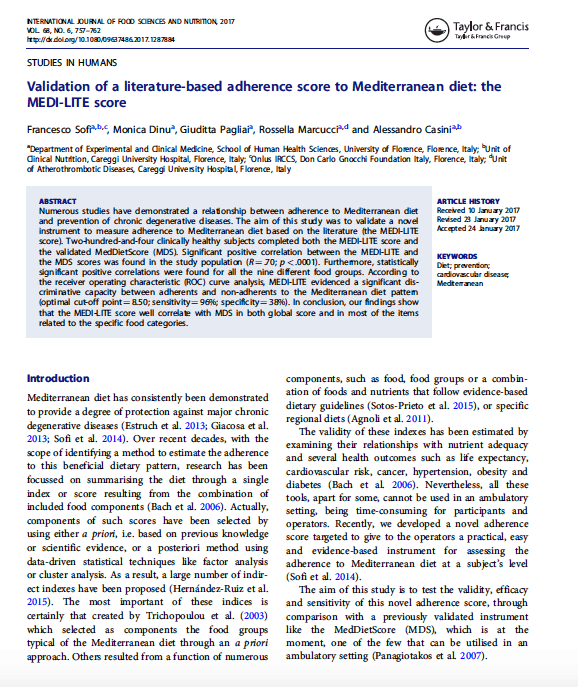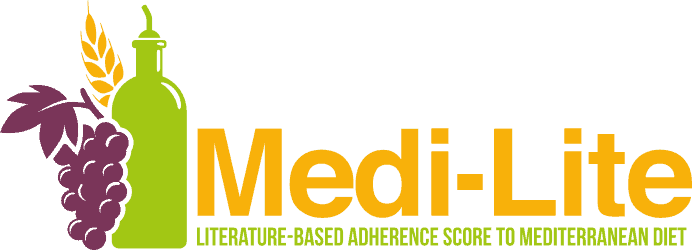
What is Medi-Lite?
Medi-Lite is an adherence score created from an idea of Prof. Francesco Sofi, Associate Professor of Food Science at the University of Florence, with the aim of providing a practical, easy and evidence-based tool to assess adherence to the Mediterranean diet.
The name Medi-Lite originates from the fusion of the terms Mediterranean and Literature (Mediterranean and scientific literature), just to highlight the fact that the questionnaire is based on data from the most relevant prospective cohort studies that demonstrated the health benefits of the Mediterranean diet.
The questionnaire, in its original version, was firstly published in the scientific journal Public Health Nutrition in 2014, and then validated through a clinical study published in the International Journal of Food Science and Nutrition in 2017. In 2018 the questionnaire has been copyrighted by the University of Florence and the database associated with the web version of the questionnaire was filed with the Italian Patent Society.
The questionnaire is completely free and has been created with the sole purpose of improving the knowledge of the general population and professionals on the role of the Mediterranean diet in public health.
.
How is it structured?
The Medi-Lite score consists of simple and quick questions that allow the user to determine the consumption, in terms of daily and/or weekly quantities, of 9 food groups that are present in the scientific studies that have investigated the association between adherence to the Mediterranean diet and health status.
The 9 food groups are:
1.Fruit
2.Vegetables
3.Cereals
4.Legumes
5.Fish
6.Meat and meat products
7.Dairy products
8.Alcohol
9.Olive oil
Who is it addressed to?
The questionnaire can be used by all those who want to know their degree of adherence to the Mediterranean diet, and by the nutrition professionals (doctors, dieticians, biologists, etc.) who want to assess the quality of their patients’ diet.


© Copyright 2018 University of Florence



